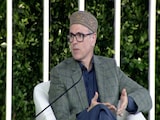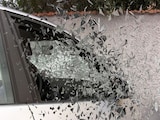The co-founder of OceanGate CEO is now leading efforts to send humans to Venus. In an interview with Insider, Guillermo Sohnlein said he is confident his new company can host a floating colony of 1,000 humans on the hottest planet in the solar system by 2050. Mr Sohnlein had co-founded OceanGate alongside Stockton Rush in 2009 but left the company in 2013. A submersible operated by Mr Rush's company disappeared in mid-June and days later suffered a catastrophic implosion while on its way to the Titanic wreckage.
Mr Sohnlein is now the chairman of Humans2Venus. And how vision includes building a floating colony on Earth's twin that could withstand the sulphuric acid clouds - one of the many issues that make Venus uninhabitable.
"Forget OceanGate. Forget Titan. Forget Stockton. Humanity could be on the verge of a big breakthrough and not take advantage of it because we, as a species, are gonna get shut down and pushed back into the status quo," Mr Sohnlein told Insider.
The recent events haven't dampened his ambition and claimed humanity needs to continue pushing the limits of innovation.
"It is aspirational, but I think it's also very doable by 2050," Mr Sohnlein further told the outlet.
His argument is based on a research by American space agency NASA that suggests there's a sliver of the Venusian atmosphere about 30 miles from the surface where humans could theoretically survive.
Mr Sohnlein, however, hasn't given any details how the proposed colony would handle the hurricane-force winds that are also a characteristic of Venus, according to the same NASA research.
In a blog post published on Humans2Venus website in February, Mr Sohnlein said, "I am not an engineer or a scientist, but I have ultimate faith in the abilities of both. Therefore, I always figured that they would be able to overcome the myriad challenges facing us in the extreme environment of space."
He further said space travel is his childhood dream. "I have spent the more than four decades since then doing whatever I could to help humanity become a multi-planet species," Mr Sohnlein wrote in the blog.















